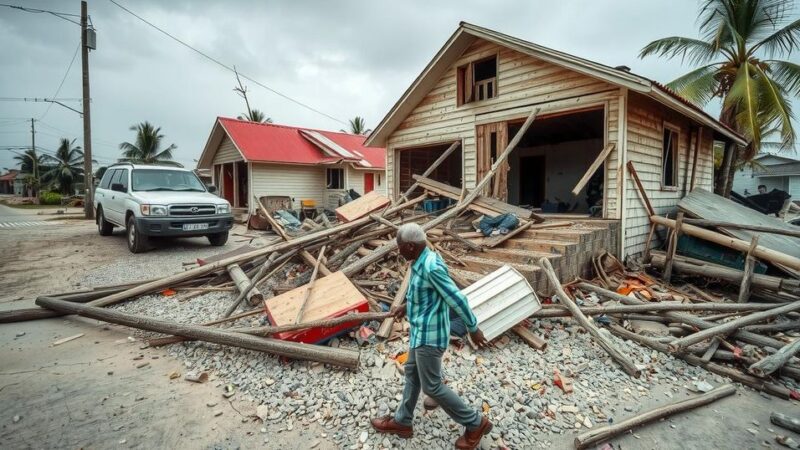At the COP29 climate talks in Baku, numerous nations voiced their disapproval of a vague draft deal that failed to specify financial commitments from wealthy countries for climate aid to developing nations. This absence of clear financial figures has led to significant frustration among negotiators, who stress the necessity for concrete funding to tackle climate challenges effectively. The discussions also revealed an urgent need for commitments to reduce fossil fuel emissions, as developing countries express their disappointment with the current proposals.
At the COP29 U.N. Climate Summit in Baku, Azerbaijan, global leaders expressed strong discontent with a new draft text aimed at securing financial commitments from wealthy nations to support developing countries in their shift to renewable energy and climate adaptation. The draft, which was criticized for its vagueness, notably omitted specific financial figures, leaving many stakeholders frustrated and disillusioned about the potential for meaningful progress. Activists, along with environmental ministers, voiced their concerns regarding the lack of clear commitments, emphasizing the urgent need for substantial financial support to combat climate change effectively.
Countries engaged in the negotiations were particularly incensed by the absence of concrete monetary commitments from affluent nations, which the developing world asserts is essential to achieve their $1.3 trillion funding goal for tackling climate challenges. Colombia’s Environment Minister Susana Mohamed lamented, “we are negotiating on nothing,” echoing sentiments from various delegates who articulated the dire impact of inadequate financial transparency. Many speakers characterized the draft as an insult to those most vulnerable to climate impacts, reflecting a broad consensus on the need for richer nations to take responsibility and provide clear financial proposals.
Moreover, the discussions have ventured beyond funding to include ambitious commitments to reduce fossil fuel emissions, with some nations voicing vehement opposition to the draft’s perceived inadequacies. German climate envoy Jennifer Morgan criticized the current proposals as lacking progress on previous agreements to cut global emissions and urged for a more robust response to the climate crisis. U.S. climate envoy John Podesta highlighted the disconnect between current initiatives and agreed-upon outcomes from previous meetings, stressing the critical need for cohesive action.
Borrows from independent analysts indicate a minimum $1 trillion is necessary to facilitate the transition to green energy and to manage climate-related losses. As negotiations continue, there remains an urgent call for developed countries to present realistic and adequately quantified financial commitments, affirming that only such actions can catalyze the necessary climate reforms and support vulnerable nations in this critical fight against climate change.
The recent discussions at the COP29 U.N. Climate Summit revolve around securing financial assistance for developing countries to transition to clean energy and adapt to climate-induced challenges. A significant hurdle in negotiations has been the failure of wealthy nations to propose specific funding figures, which has left developing nations in a precarious position as they strive to meet their climate finance needs. This summit follows previous climate agreements, where developing nations have been vocal about the necessity for substantial financial contributions from wealthier nations to address climate impacts, particularly as climate change disproportionately affects these regions.
In conclusion, the COP29 U.N. Climate Summit highlighted the mounting frustration among nations regarding the lack of concrete financial commitments from developed countries, which is pivotal for the climate transition of developing nations. As discussions progress, it will be imperative for wealthy nations to recognize their responsibility and provide explicit financial proposals to facilitate these countries in effectively combating climate change. Without clear and actionable commitments, efforts to address the climate crisis risk stagnation, further jeopardizing the future of vulnerable communities worldwide.
Original Source: apnews.com






